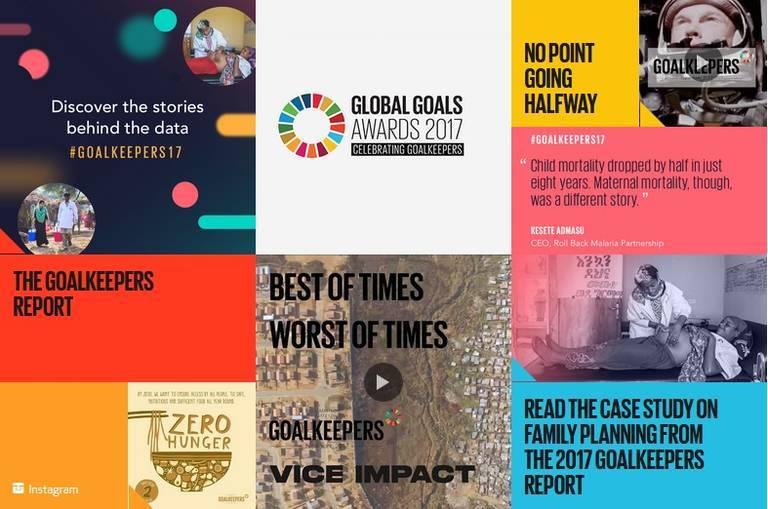
One of President Donald Trump's first actions as president was to cut funding to family planning programs. It's the kind of announcement that seems on the surface to be rather minor in the scope of global challenges: money to help women have (or not have) children? (I can hear Trump's reasoning on this): Why should the U.S. help fund family planning goals?
But family planning programs actually have far greater impact than helping people decide when and how many kids to have. And contrary to the way it was portrayed by the media at the time, it really isn't about limiting reproductive services to women around the world (a headline that Quartz couldn't pass up with the ah-hah photo of a roomful of men celebrating the executive order).
Family planning programs have to do directly with world health. They are often the silent partners to a whole range of sustainable goals that determine the resiliency of developing countries: reducing maternal mortality, child malnutrition and increasing access to education for future generations (education often being at the expense of health and financial demands), and the many other targets the UN has outlined as essential goals for global security and sustainability.
And the thing about many of those goals is that their success are interconnected: Eradicating widespread poverty requires creating jobs and opportunities in developing countries. Sustainable cities and communities are dependent upon their access to clean water and affordable and clean energy. Access and use of quality education is only really possible if you have healthy communities that aren't at risk to epidemics. And sustainable life on land and in the oceans requires addressing the instigators of climate change.
Bill and Melinda Gates have been outspoken about the importance of those 17 UN goals and committed supporters toward efforts to reduce global poverty. Of recent, they have also been outspoken about their concern that the world is no longer on solid track to meet many of those 17 goals -- issues that only a year or two ago seemed like realistic, attainable benchmarks. And yes, reduced funding from one of the richest leading nations in the world is a big concern as well.
So they have come up with the plan. And like so many plans they have endorsed in the past (eradicating mosquito-borne diseases, increasing technical expertise in African nations, etc.) they start with a simple premise:
Motivating ingenuity and optimism changes communities.
Today and tomorrow the Gates are hosting two unusual events with that very concept in mind. They have invited some of the world's most recent examples of humanitarian and social influencers to relate and celebrate some of the inspiring stories behind the world's accomplishments so far, like just how the world managed to halve mortality statistics for kids under 5 in less than 8 years, what it means to find a cure for diseases like malaria or polio and the real, human impact of reducing HIV in vulnerable communities.
As the Gates point out, the data we collect about world accomplishments is fascinating. But it is the human stories behind those wins that tell the next generation that goals that seem out of reach are really possible.
They have also released a report that lays out just what benefits will be gained by meeting each of those goals -- and the risks that lie ahead if we don't. Not addressing infant malnutrition, for example sets the world on path for increased infant mortality and all of the problems that go along with the heartbreak and financial insecurity of not being able to plan for a family's long term future.
The two-day event, which starts tonight and is presented in partnership with UNICEF takes place in New York and will be live-streamed. The Goalkeepers project has a clear objective in mind: to remind communities not just how important the goals are, but of their individual roles in attaining them. And, while the Gates never really say it, it's to remind us that the political policies that are coming out of Washington this year don't have to be transformative to the planet's future.
But we do.
More information about the Bill and Melinda Gates Foundation's efforts can be found at the Goalkeepers home page.
https://youtu.be/dDDorAzTxgs
Image: GlobalGoals.org (Project Everyone and the Global Goals Campaign)
Jan Lee is a former news editor and award-winning editorial writer whose non-fiction and fiction have been published in the U.S., Canada, Mexico, the U.K. and Australia. Her articles and posts can be found on TriplePundit, JustMeans, and her blog, The Multicultural Jew, as well as other publications. She currently splits her residence between the city of Vancouver, British Columbia and the rural farmlands of Idaho.














